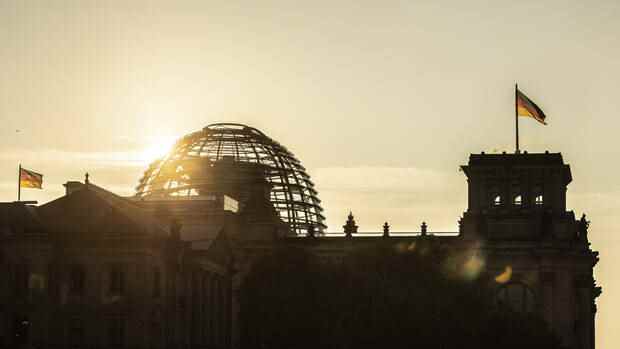Even the currently greatest risk factor for the German economy would probably not necessarily lead to a severe recession.
(Photo: Imago Images)
While the crash prophet used to be an exotic phenomenon, hysteria has now become a national sport. Politicians, economists and journalists are drawing a picture these days in which the Federal Republic is inexorably racing towards the abyss.
The fear of the word with the capital R is back: the recession. But panic isn’t just bad advice. Nor is it appropriate.
It’s true: With high energy prices, global uncertainty from the Ukraine war, labor shortages and uncertainty about the corona pandemic, there are several heavy burdens on the economy. But the fear of a major recession is unjustified. Buoyant forces that have almost been forgotten in Germany are still too strong for that.
The order backlog of the companies is as high as never before. You have problems processing it due to a lack of material deliveries. But the production is getting better and better. And even the setback caused by global uncertainty, which is causing fewer new orders from German companies, can hardly do them any harm. The buffer is big enough.
Top jobs of the day
Find the best jobs now and
be notified by email.
Also, households are sitting on massive savings that they haven’t been able to spend at the restaurant or amusement park during the pandemic. The high inflation eats up part of it. Nevertheless, consumption is picking up and thus supporting the economy.
The disruptive factors are enormous, but the economic scheme shows continued upswing. Although it is very subdued, reputable economists are only expecting growth of around two percent for the current year. And currently it can also be said that, depending on the definition, Germany is already in a short-term technical recession.
Around two percent growth is still indicated
But that’s a long way from the great recession. It is quite possible that the economy will not even grow by two percent. But Germany could even cope with stagnation. Comparisons with the 1970s or the global economic crisis are misplaced. In 2008, for example, economic output fell by almost six percent.
Above all, inflation is a risk. Price jumps will accompany us not only in the coming months, but also in the years to come. But this is not to be confused with scaremongering, according to which inflation makes us all poor.
That would only happen if she went completely out of control. But there are no signs of this so far. Despite higher wage demands, wages will rise less than prices.
One can certainly blame the European Central Bank for initiating the turnaround in interest rates too late. And countries like Italy are in for a hard landing after cheap money flies free. But monetary and fiscal policy have crisis instruments for this. Inflation and interest rate hikes are knock-downs, not knock-outs.
Even the biggest risk factor for the German economy at the moment – a sustained halt to the supply of Russian gas – would probably not necessarily lead to a severe recession. Calculations by the largest German research institutes show that it is unlikely that an embargo will lead to a gas shortage at all.
More: Price rally likely to continue for years

